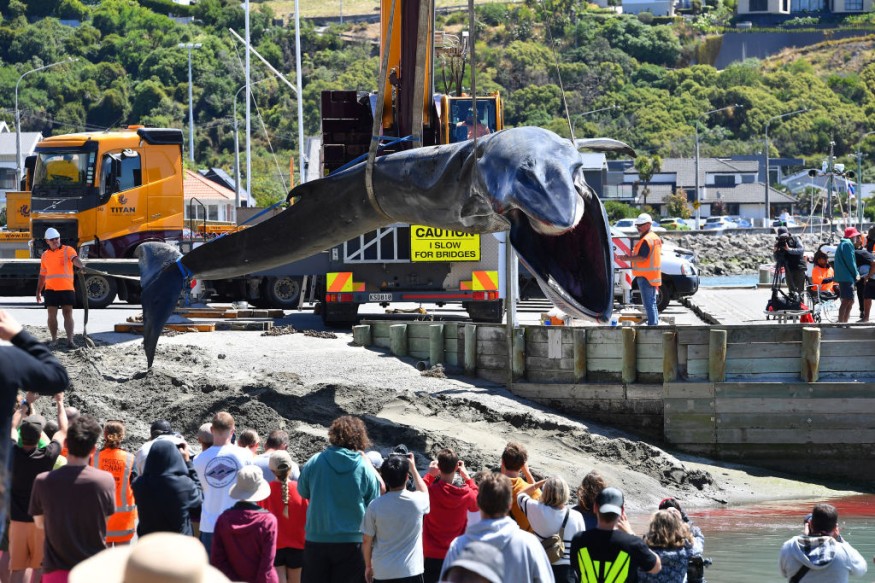
A group of more than 30 pilot whales that stranded themselves on Ruakākā Beach near Whangārei in New Zealand was successfully returned to the ocean, thanks to the efforts of conservation workers and hundreds of volunteers.
The whales, which were found stranded on Sunday, were carefully lifted on sheets and refloated into the water.
Despite the successful rescue, four of the whales, including three adults and one calf, tragically died, New Zealand's conservation agency reported, according to AP News.
The Department of Conservation praised the dedication of the local community in helping to save the stranded pod, calling the response "incredible."
Joel Lauterbach, a spokesperson for the agency, expressed admiration for the volunteers, stating, "It's amazing to witness the genuine care and compassion people have shown toward these magnificent animals. This response demonstrates the deep connection we all share with our marine environment."
New Zealand's Geography and Cultural Significance in Whale Strandings
New Zealand has long been known as a hotspot for whale strandings, with pilot whales being particularly vulnerable. In 1918, a massive stranding of about 1,000 pilot whales occurred at the Chatham Islands.
While the exact cause of strandings remains unclear, experts believe that New Zealand's geography plays a significant role. The country's coastlines, with their shallow and sloping beaches, may confuse pilot whales, which navigate using echolocation.
On Monday, a Māori cultural ceremony was held for the whales that did not survive. The Māori people regard whales as a taonga, or sacred treasure, with great cultural significance.
As the rescue efforts continue, the Department of Conservation is monitoring the area to ensure no further strandings occur.
Since 1840, New Zealand has recorded more than 5,000 whale strandings, with pilot whales being one of the most frequently stranded species, according to Sky News.
© 2025 NatureWorldNews.com All rights reserved. Do not reproduce without permission.





